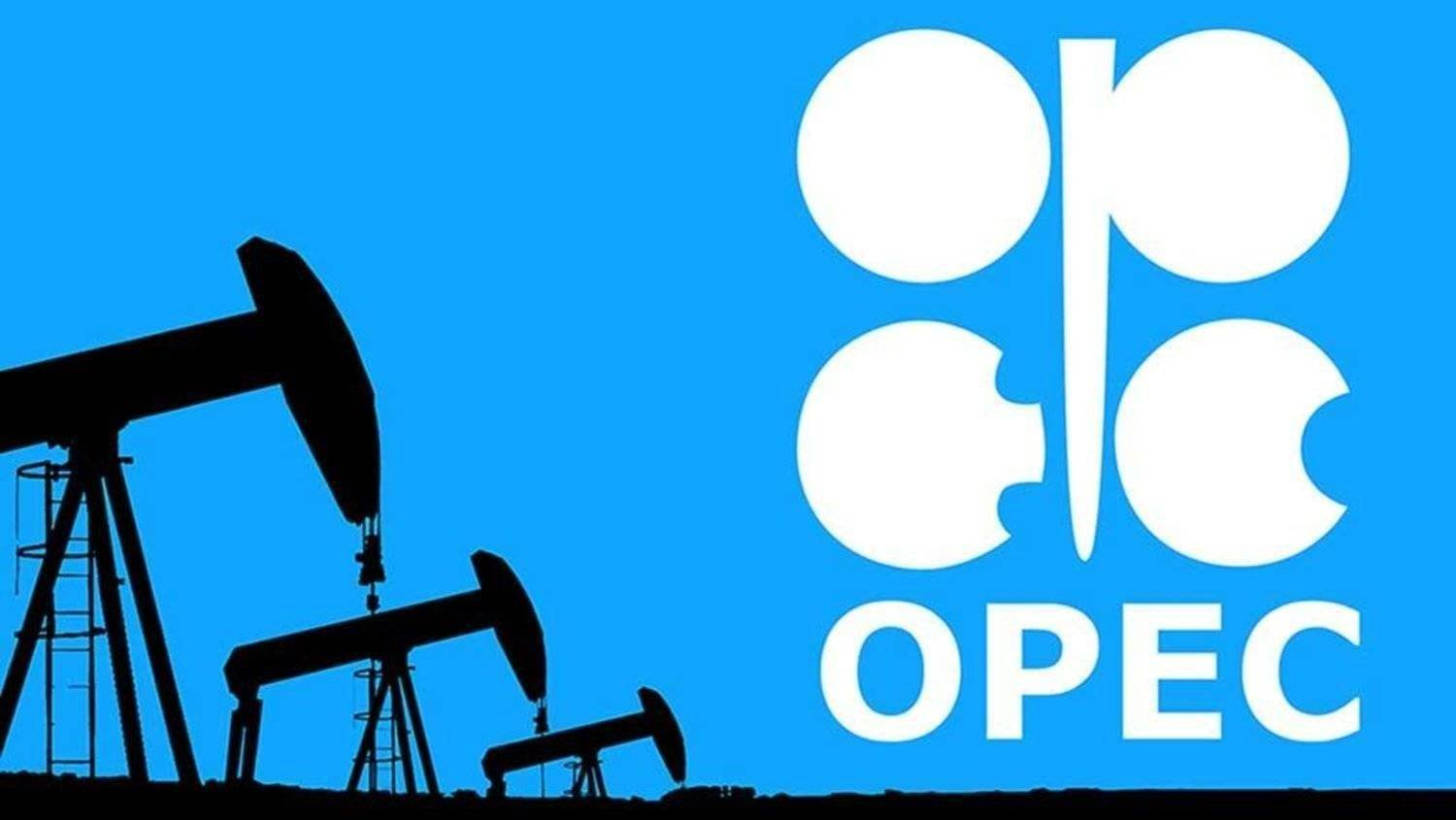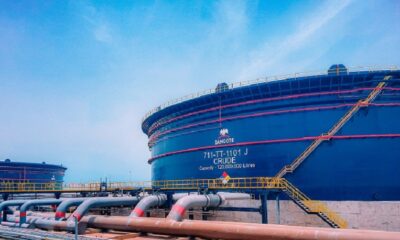Business
OPEC Sees Dangote Refinery Disrupting European Markets

The Organisation of Petroleum Exporting Countries (OPEC), has credited supplies from the Dangote Refinery and Petrochemicals with the capacity of mounting pressure on the performance of Europe’s oil industry, especially the Northwest Europe (NWE) Gasoil.
This was contained in OPEC’s monthly Oil Market Report for June 2024, recently released, which listed Dangote Refinery among the top diesel and jet fuel suppliers expected to disrupt Europe’s oil and gas industry.
Recall that Standard & Poor’s (S&P) Global quoting trading and the ship tracking sources had earlier predicted that Nigeria’s $20 billion Dangote Refinery would shake up international crude flows when it reaches full capacity, having already made an impact since coming online in January.
ALSO READ: How Your Products And Services Can Become Gold Standard
It was gathered that the leading index provider, and data source of independent credit ratings. relied on figures from trading sources and ship tracking data for its assertion.
The OPEC report asserted, “Upside potential for higher production levels from Nigeria’s Dangote Refinery, coupled with strong flows from the Middle East and new supplies from the Mexican Olmeca refinery, will likely exert pressure on NWE gasoil performance in the mid-term.”
The report pointed out that “Europe is one of the world’s largest purchasers of refined petroleum products and relied on imports from Asia and the US after the European Union banned the use of Russian diesel in the bloc.”
However, the 650,000bpd capacity refinery which is owned by the Africa’s richest man, Aliko Dangote, is eyeing the wider European market after International Oil Companies (IOCs) sharing the same domestic economy with it, stopped supplying it with crude oil.
Vice President of Oil and Gas at Dangote Industries Limited, Devakumar Edwin announced the company had earlier exported its first jet fuel cargo to Europe as it rapidly scales production.
The refinery is said to have exported 90 percent of its 3.5 billion litres of jet fuel and diesel to Europe over alleged lack of support from the Nigerian government.
“It is good to note that from the start of production, more than 3.5 billion litres, which represents 90 percent of our production, have been exported,” Edwin said
BP is currently transporting its first jet fuel cargo to Rotterdam from Dangote, after being awarded part of a 120,000 metric tonnes tender offered for the end of May, according to S&P Global.
The OPEC’s report noted that, “In June, the jet/kerosene crack spread in Rotterdam against Brent showed a slight decline, influenced by supply-side dynamics. Despite signs of improving air travel activities, subdued jet fuel demand from the aviation sector weighed on the product market.
“Going forward, European jet/kerosene demand is expected to see upward pressure as consumption levels from the aviation sector continue to pick up in the coming months.”
S&P had noted that Dangote Refinery in its first six months, scaled to 400,000 b/d and delivered diesel, jet fuel, naphtha, and fuel oil to both domestic and export markets, with Gasoline, Nigeria’s primary fuel type, being expected to be produced from mid-August
It was gathered that the refinery already affected crude flows, with dozens of Nigerian cargoes remaining in-country and US WTI Midland, a comparable light, sweet grade, being imported.
The mega-refinery could therefore tighten the light, sweet crude market.
“It’s diet is WTI and the lighter Nigerian [crudes] so if you were chasing those barrels you’d probably feel it quite keenly,” a West African crude trader told Commodity Insights.
President of Dangote Group, Aliko Dangote said the facility would broaden its feedstock sources with Libyan, Angolan, and Brazilian crude.
“The refinery was built to use Nigerian crude and add value to it within Nigeria. Why should we deviate from that focus?” said Dangote, adding that the crude supply issues were “getting resolved”, but that the refinery remained open to all opportunities “to supplement it”.
“Dangote refinery is designed to process a range of light and medium grades of crude oil, including Nigerian grades,” said Rasool Barouni, Associate Director and head of Refining at S&P Global Commodity Insights. “Other similar grades including other WAF grades could be an option.”
Biztellers reports that Nigeria is sub-Saharan Africa’s largest oil producer, pumping 1.5 million b/d in June, according to the Platts OPEC Survey from S&P Global Commodity Insights.
Until 2024, all of Nigeria’s crude was exported due to the lack of refining capacity, with gasoline, diesel, and jet fuel imported for domestic use.
Business
Savannah Energy Provides Unaudited FY 2024 Trading Updates

Savannah Energy has shared a trading update on its Nigerian operations and other markets in Africa, including up-to-date cash collections in its Nigerian business.
According to the update, made available on Thursday in Lagos, its gross production in Nigeria averaged 23.1 Kboepd for FY 2024, broadly in line with the prior year’s 23.6 Kboepd, of which 88% was gas (FY 2023: 91%).
On the update, CEO of Savannah Energy, Andrew Knott, said, “I am pleased to provide a FY trading update which demonstrates the continued progress we have made in 2024, a year which saw the highest level of cash collections ever recorded by our Nigerian business. 2025 is expected to be an exciting year for our Company: we have a large planned operational programme in Nigeria which is anticipated to enhance both our oil and gas production levels and capacity; we intend to progress our R3 East oil development project in Niger; we continue to pursue key acquisitions in the upstream oil and gas space; and we continue to seek to build our power business.
“Fundamentally, Savannah remains unequivocally an “AND” company, seeking to deliver strong performance both for the short AND long term across multiple fronts, and pursuing growth opportunities in both the hydrocarbon AND power sectors.”
The update It also shows that it generated a Total Income of US$393.6 million in 2024, compared to FY 2023’s US$289.8 million. This consists of Total Revenues of US$258.7 million and Other operating income of US$134.9 million.
The report also shows that Savannah’s FY 2024 Total Revenues were ahead of the previously issued financial guidance of greater than US$245 million, while FY 2024 financial guidance is reiterated for Operating expenses plus administrative expenses at ‘up to US$75 million’. The company expects its FY 2024 capital expenditure to come in lower than planned (previously guided at ‘up to US$50 million’) due to the phasing of spend.
ALSO READ: CSR: Dangote Awards Scholarships To 473 Students
According to the update, Savannah’s cash collections in 2024 amounted to US$248.5 million, a slight increase from the US$206 million it received in 2023. The report further shows that its cash balances as at 31 December 2024 stood at US$32.6 million, compared to the 31 December 2023 figure of US$107.0 million.
The report shows that the company’s midstream subsidiary, Accugas Limited, had as at 31 December 2024 drawn down on its NGN332 billion of the NGN Transitional Facility, with the resulting funds being converted to US$, which, along with cash held, was used to partially prepay the existing Accugas US$ Facility, leaving a balance as at 31 December 2024 of approximately US$212.3 million.
The report also provided new updates on Accugas’ US$45 million Uquo Central Processing Facility (“Uquo CPF”) compression project in Nigeria, noting that its commissioning which will enable the expansion of gas production in the medium term is well underway.
The report highlighted the progress being made in the procurement process of long lead equipment in Nigeria for a potential two-well drilling campaign on the Uquo Field in H2 2025, with an additional gas development well expected to add up to 80 MMscfpd of supplemental production capacity and a potential exploration well targeting an Unrisked Gross gas initially in place (“GIIP”) of 154 Bscf (25.7 MMboe) of incremental gas resources.
The update shows that progress is also being made in the planned Savannah acquisition of Sinopec International Petroleum Exploration and Production Company Nigeria Limited, whose principal asset is a 49% non-operated interest in the Stubb Creek oil and gas field (“Stubb Creek”), with regulatory approval and completion being targeted in Q1 2025. Following the completion of the acquisition, Savannah intends to commence an expansion programme which is anticipated to increase Stubb Creek gross production from an average of 2.7 Kbopd in 2024 to approximately 4.7 Kbopd.
In Niger, Savannah continues to seek to progress its 35 MMstb (Gross 2C Resources) R3 East oil development in South-East Niger, while it continues to push for a potential alternative transaction structure to acquire a material stake in producing oil and gas assets in South Sudan as previously announced on 20 December 2024.
On the renewable energy front, the update shows that Savannah has up to 696 MW of renewable energy projects currently in motion, including the up to 250 MW Parc Eolien de la Tarka wind farm project in Niger and the up to 95 MW Bini a Warak hybrid hydroelectric and solar project in Cameroon. A firm believer in Africa’s transition to renewable energy, Savannah continues to target a portfolio of up to 2 GW+ of power projects in motion by the end of 2026.
Business
Nigeria Can Achieve 5.5% GDP Growth – NESG
The Nigerian Economic Summit Group (NESG) has projected that the country has the potential to achieve a 5.5% growth in Gross Domestic Product (GDP) if critical policy reforms are sustained.
This was disclosed on Thursday during the launch of the NESG’s 2025 Macroeconomic Outlook report.
Speaking at the event, the Chief Economist and Director of Research & Development at NESG, Dr. Olusegun Omisakin, highlighted the need for more efficient policy implementation to unlock Nigeria’s economic potential.
READ MORE: Davido Is Richer Than His Billionaire Father – Ibrahim Chatta Claims
“We believe at the optimal level, if we embark on more efficient policy reforms, the Nigerian economy has the potential, the GDP to end up at 5.5 per cent, and we believe that this is achievable,” Omisakin stated.
More to follow……….
Business
CBN Approves Release Of Nigerian FX Code
The Central Bank of Nigeria (CBN) has announced the release of the Nigerian Foreign Exchange (FX) Code, a set of guidelines designed to promote ethical conduct among authorized dealers in the country’s FX market.
In a statement, the apex bank disclosed that the official launch of the Code would take place on Tuesday, January 28, 2025, at the CBN Head Office Auditorium in Abuja.
READ MORE: Dangote Denies Culpability In Pumping Up Petrol Price
“The Central Bank of Nigeria has approved the release of the Nigerian Foreign Exchange (FX) Code as a guideline to the banking industry to promote the ethical conduct of authorised dealers in the Nigerian Foreign Exchange Market,” the statement read.
The introduction of the FX Code is expected to enhance transparency, accountability, and professionalism within Nigeria’s foreign exchange ecosystem, aligning it with global best practices.
The event is anticipated to attract key stakeholders in the financial and banking sectors, as well as representatives from authorized FX-dealing institutions across the country.






















